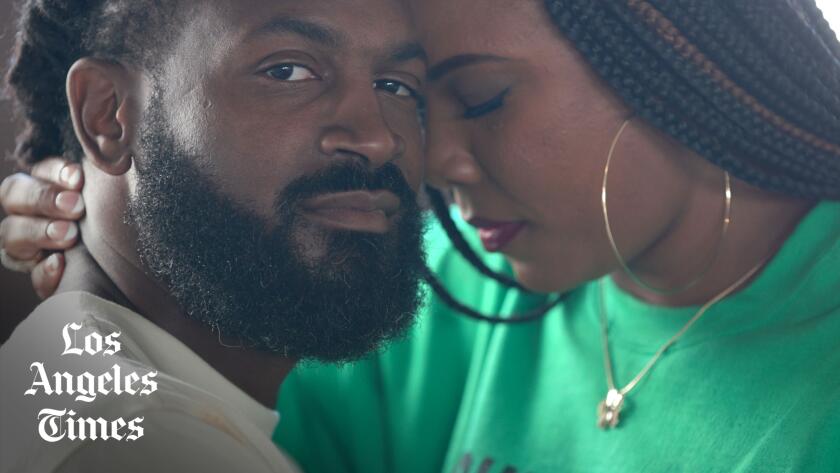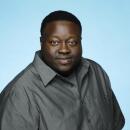- Share via
For years, the Los Angeles Times has overlooked the vibrancy of Black L.A. A new portrait series by the paper lets the community speak for itself.
- Share via
Editor’s Note: This story is part of The Times’ Behold special photo project spotlighting Black L.A. through images and their own words in honor of Juneteenth. To view the entire project, visit latimes.com/behold
Pastor Michael T. Fisher remembers the first time he felt seen in mainstream media.
The year was 2012, and his beloved Greater Zion Church Family youth pastor, Oscar Duncan, had just been shot and killed while attempting to speak with a gang member in Venice. Fisher recalls pleading with the Santa Monica Police Department to further investigate the murder, turning to the media to help amplify the story.
He’d become accustomed to his calls falling on deaf ears, editors and reporters deeming his tireless work to uplift Compton too trivial to highlight. But suddenly, after a Black life had been cut short by a senseless killing, they found the time to pick up the phone.
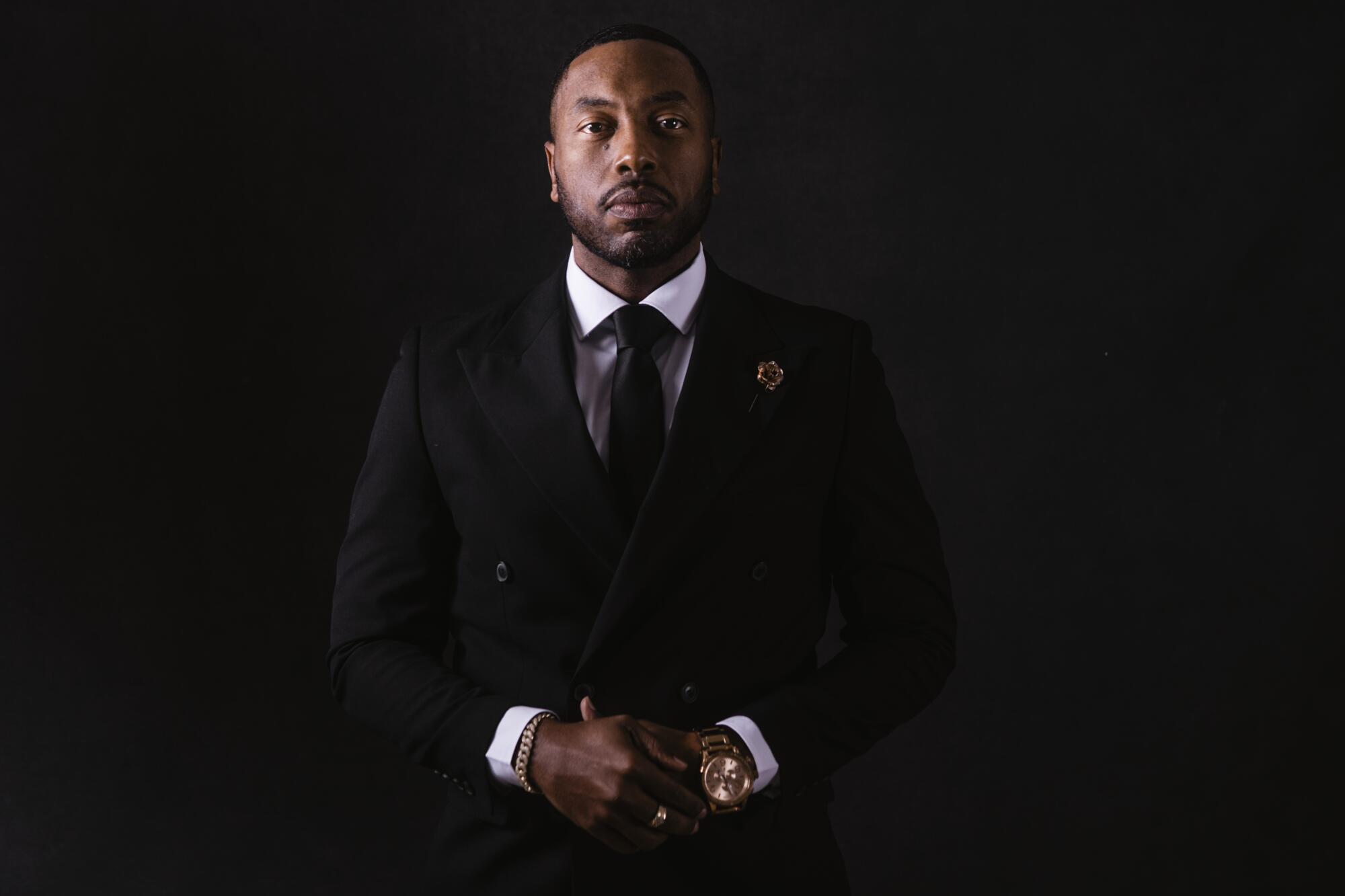
“That was 10 years of me in the game, where I had done so many positive things for the city of Compton,” Fisher said. “I remember begging news outlets to come and cover what we were doing for the kids. But the only time they would respond was when it was something that was negative.”
“I remember getting ready to be bitter about it, and say that’s why I don’t fool with y’all,” he continued. “But I said, nah, let them keep coming out, and when I get enough clout, I’ll get a big enough platform and make them come cover the positive stuff. And eventually, that’s what happened.”
Fisher’s story isn’t unique, though — and that’s part of the problem. Along with other issues, that reductive and heavily filtered image of Black life in Los Angeles has left many feeling unseen, underappreciated in many areas in and around the very city they call home.
“When I walk into Santa Monica, Beverly Hills, Signal Hill, Orange County, Riverside County, San Bernardino County — and I’m naming all of those on purpose — it is so unfortunate that white America can say we’ve come such a long way, but when I walk into those cities, it’s noted that I’m not supposed to be there,” Fisher said. “I don’t feel embraced in many of those areas I named. They want to ask so bad, ‘How did you get up here?’ ”
Jacket Rashad, a barber at Brimberry Barber and beauty salon in Leimert Park, has similar stories. He remembers spending nine months in solitary confinement in an Ohio jail and reemerging in 2001 to hear he was being transferred to Los Angeles. Before long he’d hopped off the plane at LAX, his body in a new location, but his mind still stuck in that hole.
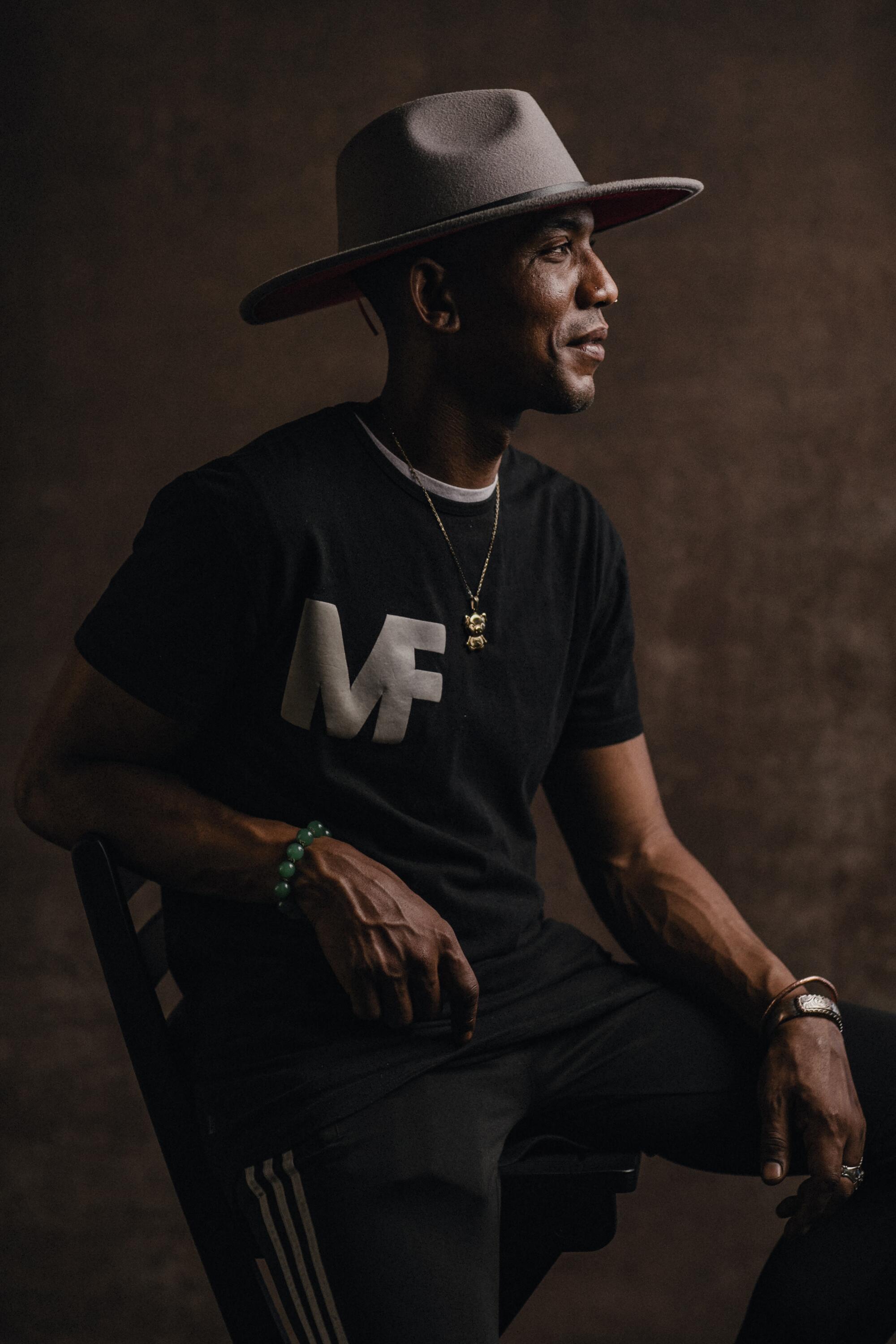
For a while, life was a blur; after regaining his freedom, he battled homelessness and heartache as he searched for his niche. Stuck in a mental rut without that stability on which to ground himself, he fell into “invisibility” despite his best efforts to work his way up and provide for his children.
“When you’re a Black man, with some kind of decency about yourself — you speak well, you dress OK — no one’s judging you,” Rashad said. “But you become invisible if you have mental health problems, like I have. I suffer from severe bipolar disorder. I’ve been getting the help, but I became invisible in this society, because I wasn’t showing up how society wanted me to look. Dirty, bummy, crunchy looking … I got ignored, and I ended up getting more worn in my mental fortitude.”
Fisher and Rashad don’t place all the blame for that incomplete image of Black L.A. on the media, but they agree it plays an outsized role. It’s affected them in different ways too — for Rashad, the constant barrage of images depicting crime and violence damaged his own self-image, while Fisher found that negative media coverage making it harder for non-Black people to see him as human.
“They have at least 80% to do with how we are portrayed,” Fisher said. “Every time they decided to call someone from South L.A. a thug, every time they decide to describe the ‘angry Black man or woman’ or portray us as animals and attackers, that perpetuates the stereotype. Every time they throw crime into Compton’s backyard, when where it happened was literally Los Angeles unincorporated, that adds to the stereotype of Compton.”
For Honey Blu, an artist and a barista at Hot and Cool Cafe, expecting the media to fully cover the depth of Black L.A. is somewhat of a futile effort. Growing up between Long Beach and South-Central, she rooted herself in the language of resistance, finding her place while studying at Renaissance High School for the Arts. During her junior year, she buried herself in the library, reading Assata Shakur’s autobiography and watching documentaries such as “The Black Power Mixtape.”
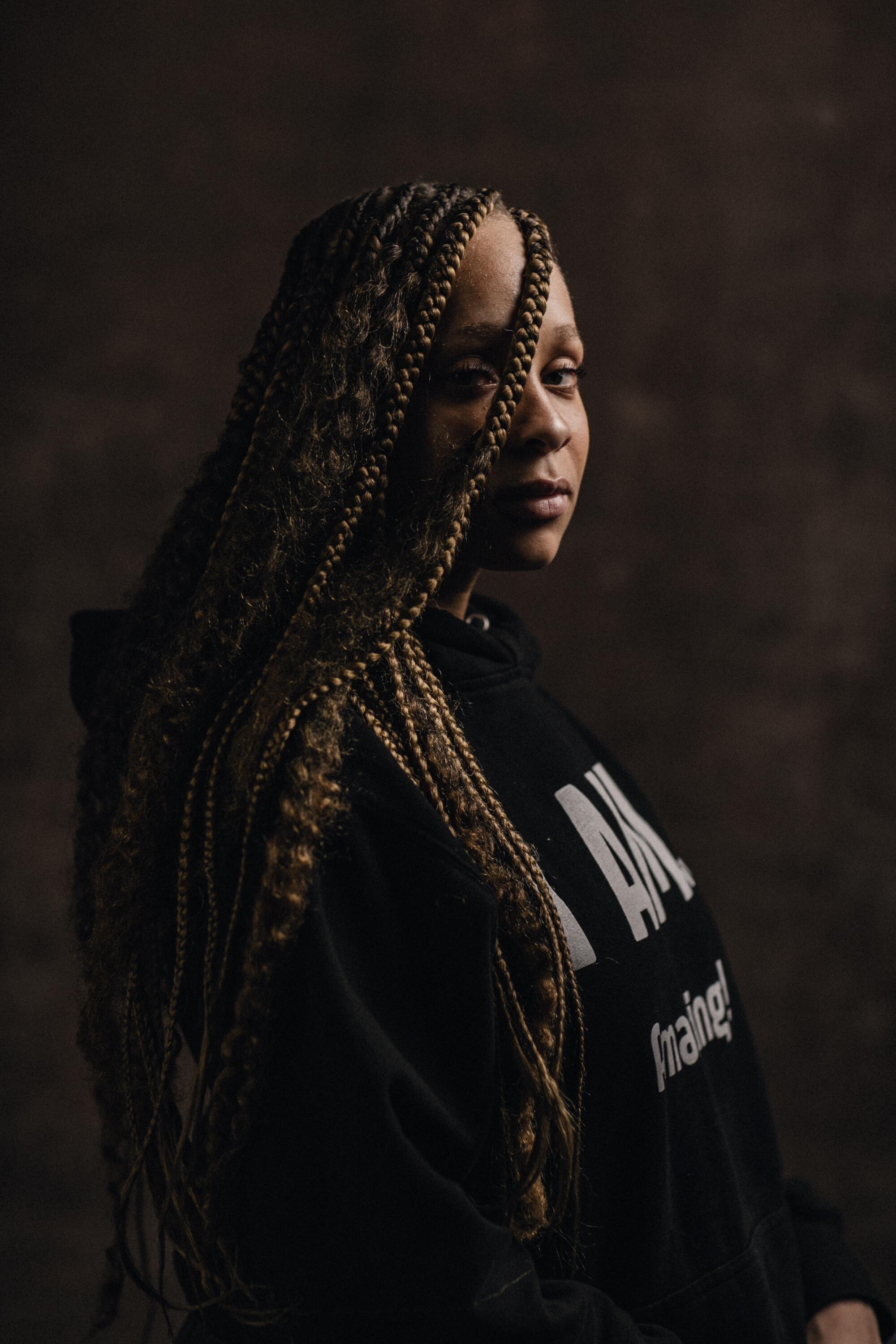
These days, she’s more interested in building up the existing Black-owned outlets in Los Angeles; such as the Burning Spear Newspaper (which she proofreads) than petitioning for mainstream media to hit each and every story. Still, she’s cognizant of the role mainstream media plays in shaping people’s perspective of Black L.A., especially those whose sole entryway to that community may be that filtered lens.
“I’d always argue the media could do a better job at portraying Black L.A. on a larger scale,” she said. “However, the goal is not to always rely on the media, but use it to teach why Black and African people need to build their own systems of media, so we have platforms where it’s easier to tell our own story.”
Lacking that visibility on a large scale, Blu turned inward and sought out her own community to feel truly seen herself. While studying at El Camino College in 2019, she made frequent northern pilgrimages to the Pocket L.A., an open mic in Culver City (before moving to Los Angeles) that gave aspiring artists the chance to perform in a place that felt like home.
It wasn’t easy at first. But over time, she opened up in the presence of like-minded artists — not only seeing herself, but feeling free to express herself and her art in a space intentionally crafted with safety in mind.
“At the time, I had a little bit of social anxiety, and that place was where I challenged myself to get outside my comfort zone and overcome that anxiety,” Blu said. “I would go by myself, because I felt so seen, and so open.”
That idea of intentionality plays a major role in how Natasha Smith feels seen too. A native of Virginia Beach, Va., Smith was always infatuated with the water, making biweekly trips to the ocean since the age of 5. Growing up, she had plenty of friends who surfed, but said they never extended the invitation to paddle out alongside them, assuming she wouldn’t be interested or capable.
It wasn’t until she visited California on a work trip that she took a lesson for the first time, and even though she wasn’t an instant prodigy, she fell in love with it. Eventually she moved to L.A. and lived out of her van, noting that although the waters haven’t always been the kindest to Black people, groups such as Ebony Beach Club are providing the necessary visibility.
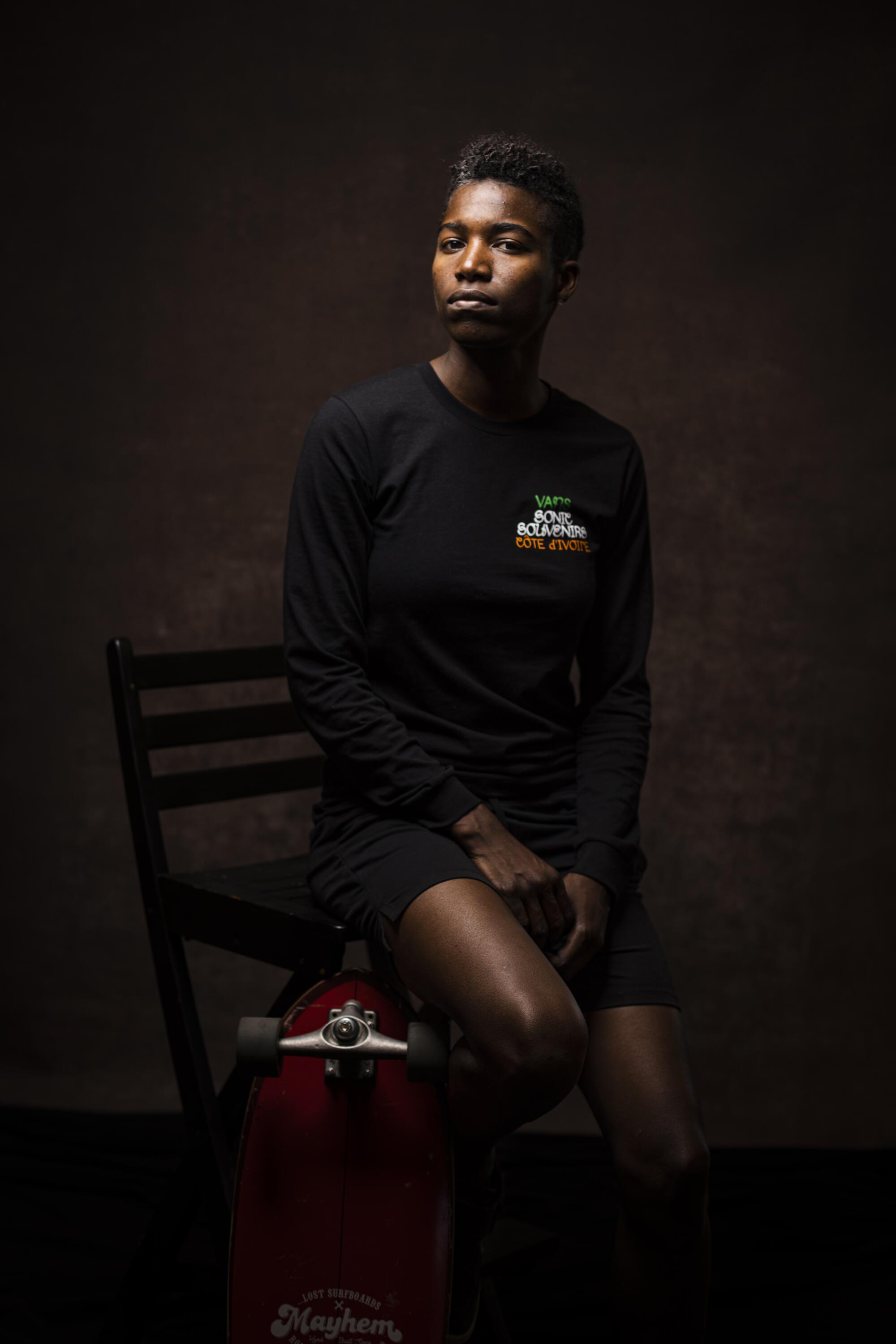
“One of the reasons we do have those pockets of warm feelings is because there’s safety in numbers,” she said. “So when we get these kickbacks together and we bring everybody down to the beach, then the beach starts to feel warm too.”
For Rashad, though, that warmth always comes from Leimert Park. Even when he didn’t feel welcome in the Greater Los Angeles area, he found solace in the village, making the connections that helped him pick up the pieces and find his place in the city.
“I don’t feel like I need to go anywhere else in the world to experience that kind of magic,” he said. “I’ve always felt complete since the day I came here. I’ve developed my musical talents, I brought my children down here. I’ve experienced adjustments in religion, I’ve had so many elders give me advice. I’ve acquired family.”
Rashad remembers the first time he felt seen in Los Angeles too.
“It was last year, when I pulled myself up by the bootstraps to become a street barber,” he said. “It took 20 years, but it was worth it. I’m standing inside a barbershop, talking to the L.A. Times.”
More to Read
The biggest entertainment stories
Get our big stories about Hollywood, film, television, music, arts, culture and more right in your inbox as soon as they publish.
You may occasionally receive promotional content from the Los Angeles Times.
